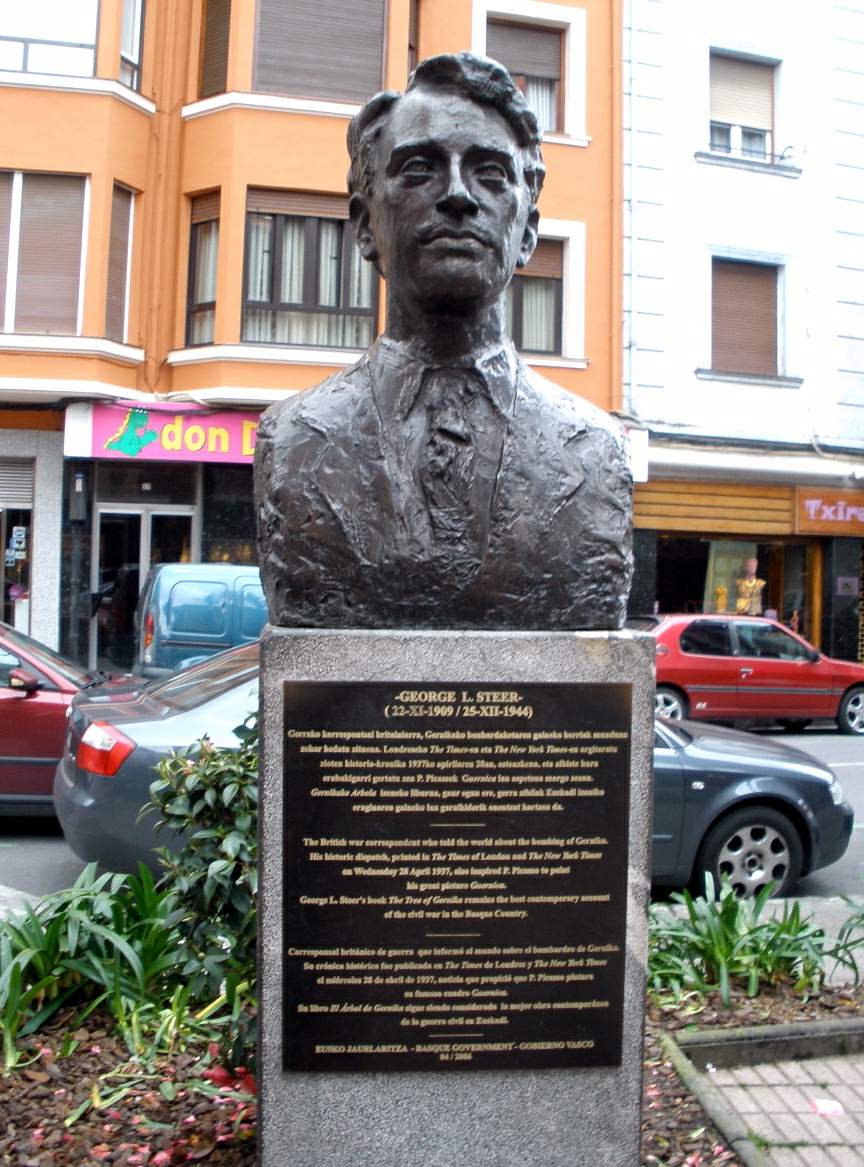Yes, by dropping leaflets, when they should have been dropping bombs. They learned nothing from Cities being bombed by the Germans in Spain and Poland.
Fools to believe that they soon wouldn't be bombing French and then British cities.
Largely there weren't bombing of undefended Allied cities in the west until the accidental London attack and RAF retaliation on Berlin.
Poland was a different situation, but even there it seems the majority of city bombing was of defended cities or at least cities with troops in them or were thought to have them there. Same with Spain, Guernica was bombed because of it's military value and use as a troop transit point, plus there were troops in the city at the time.
But that didn't stop the press with sensationalizing things:

en.wikipedia.org
The Times journalist
George Steer, a Basque and Republican sympathizer, propelled this event onto the international scene and brought it to Pablo Picasso's attention.
Steer's eyewitness account was published on 28 April in both
The Times and
The New York Times, and on the 29th it appeared in
L'Humanité, a French Communist daily.
Except he wasn't there until it was over:

en.wikipedia.org
Although
he was not an eye-witness to the bombing itself, he arrived soon afterwards, and so was able to see the effects and talk to some of the survivors.

en.wikipedia.org
The number of victims is still disputed; the Basque government reported 1,654 people killed at the time, while local historians identified 126 victims
[2] (later revised by the authors of the study to 153).
[3]
From a USAAF study on the subject, starts on p.7 and deconstructs the myths of the bombing. Unfortunately it won't let me copy any of the text and I don't have time to type it out:
It also has info about how panicked the Allies were that if the Germans wanted they could wipe out cities at a whim, so didn't want to provoke attacks.
Similarly the bombing of Dresden wasn't a war crime because it was a major troop transit center, had military production, and was defended. That doesn't mean these attacks weren't atrocities whatever the laws of warfare of the time said, but the attacks were conducted for military reasons and not simply terror; it was often confused at the time, perhaps intentionally for propaganda reasons, when bombing attacks missed their mark that the attack was for terror purposes than an attempt to hit military targets. Like during the Blitz the Luftwaffe was constantly shifting targets and the British couldn't figure out what they were doing, so simply assumed it was meant to terrorize the population to break their morale.
Even the flawed BC dehousing strategy was pursued for military reasons rather than simply to terrorize, it was just hoped that the additional morale impact would break German will to resist, but that didn't stop Goebbels from calling it criminal terror attacks.
The French and British understood they couldn't defend against Luftwaffe retaliation (plus they assumed it was stronger than it was) so didn't want to provoke it. As we saw from 1940 the AdlA was not ready for combat, as IIRC something like 25% of it was even combat operational as of May. Plus the Allies didn't really have a serious radar network in France.
As to the British in 1939 few RAF aircraft could reach Germany and in daylight they were slaughtered; they switched to night and couldn't hit anything. The rest of the RAF was busy displacing to France, which was a long process and one that wasn't complete until 1940 and then they had to prep to fight off the expected invasion.




